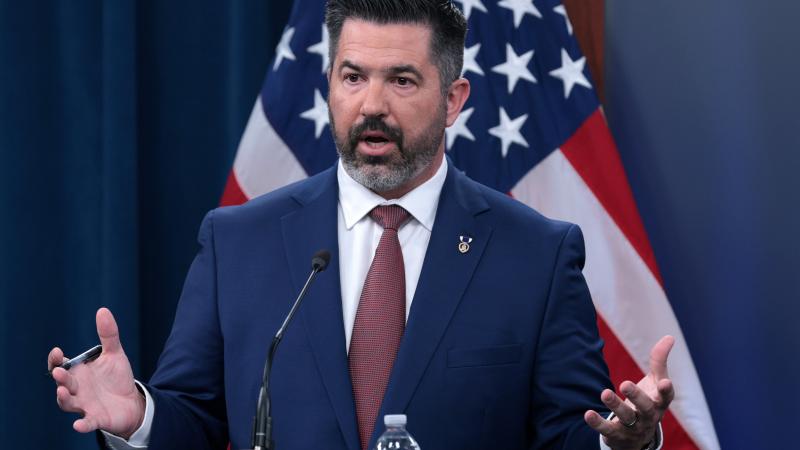D-Day commemorations will be virtual for the first time in 75 years
In-person events have been cancelled because of the coronavirus.
For the first time in 75 years, America’s D-Day commemoration ceremonies in Normandy, France will not be held on the beaches where brutal combat changed the course of World War II. Instead, because of coronavirus, observances for Operation Overlord will be held virtually, military officials said.
Operation Overlord, the D-Day offensive of June 6, 1944, was the largest amphibious assault in history. During the invasion, nearly 160,000 Allied forces forged through treacherous water and in the face of withering fire, to land on Normandy.
"While we will never know every individual act of heroism that occurred on D-Day, we can pause to honor all the Allied forces who acted so valiantly 76 years ago," said Gen. Tod D. Wolters, the head of U.S. European Command.
On the morning of the 1944 invasion, soldiers boarded the ships that would carry them to their rendezvous with history. Loudspeakers delivered their commander’s Order of the Day.
“The eyes of the world are upon you,” General Dwight D. Eisenhower told them. “The hopes and prayers of liberty-loving people everywhere march with you.”
The short journey across the channel from England to France was impossibly rough.
“The water was coming all over,” said H.L. “Pete” Myers, the last survivor of Fox Company, a unit from the 29th Infantry Division, in a 2014 interview. “The boats were bouncing up and down, and the boys were getting seasick, vomiting in their helmets and putting them back on; it would run all down their face and shirt.”
One commander, Col. Paul Goode, told his men: “You get your ass on the beach. I’ll be there waiting for you and I’ll tell you what to do. There ain’t anything in this plan that is going to go right.”
When closer in to shore, men climbed down nets from their ships and into landing boats. They encountered withering fire.
“When the ramp dropped, the Germans opened up with everything they had,” Myers said. “They had every inch of the beach covered and were swatting us down like flies.”
One lead unit, from the Virginia National Guard, suffered nearly 80% casualties, according to the National Guard Bureau.
In all, the Allied Forces had suffered nearly 10,000 casualties, including more than 4,000 killed, according to the National D-Day Memorial Foundation in Bedford, Virginia.
The operation succeeded in capturing all five landing sites on the beaches — codenamed Utah, Omaha, Gold, Juno, and Sword — and turned the war in Europe toward Allied victory.
In the years since, the military has commemorated the landings each year, in ceremonies held on site — until this year, when COVID-19 forced organizers to cancel the in-person events.
Online commemorations include historical roundtables, and fighter jets flying over all five landing beaches and Pointe Du Hoc. Videos of these and other events can be viewed at a U.S. Army Europe website, here.














